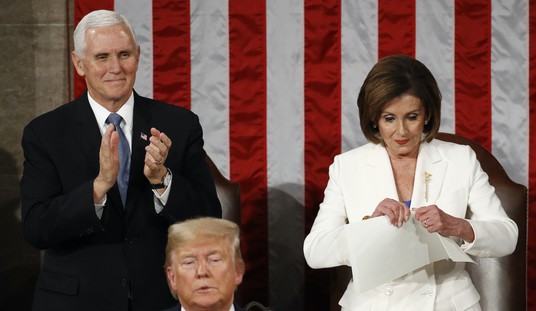Hello. My name is Ward, and I’m a grammar snob.
English is a language that’s forever changing; it’s been said that while other languages adopt words and phrases, English chases other languages down dark alleys, hits them over the head, and goes through their pockets for loose grammar.
But English is what we have, and while the internets are rife with video and audio, we still rely primarily on written English to make our points. Since written English is what we have to judge each other with, it’s to our advantage to make some effort to follow the recognized rules of English. Nobody’s perfect, mind you – that’s why we have editors, and my thanks to the editors here at RedState for the many times when I can recall they stopped me from looking like, as my Brit friend would say, “a right chump.” I’m also married to an editor and publisher, and believe you me, she does not hesitate to correct my work, at times very directly.
So, yes, I am a proud grammar snob, and I’ll make no apology for it. Seeing what’s happening to the English language in the increasingly incoherent online world makes me sad, so I take every opportunity to fight back.
Let me tell you 10 reasons I weep for the death of written English.
First: What has happened to the question mark? I’m seeing more and more people write what appears to be a query but framing it thus: “Why would anyone want to ride a bicycle in a big city.” No! That’s wrong! Stop doing it! The correct punctuation would be “Why would anyone want to ride a bicycle in a big city?” But for some reason, the question marks are going away. I’m seeing this more and more, including by some folks who should know better.
Second: I’m seeing this in both written and spoken English – “On accident.” No! This is wrong! Stop doing it! It should be “by accident.”
Third: ALL CAPS. It just makes the writer look like a strident jerk. So there. And what bugs me almost as much are people who can’t be bothered to use caps at all, even where it’s proper to do so. No! This is wrong! Stop doing it!
Fourth: Capital letters should be used appropriately. As in, on proper nouns, and in titles. See the rules for capitalization in English here. Don’t just capitalize when you feel like it, and don’t capitalize every word in a sentence.
Fifth: Apostrophes. These are used for contractions and to indicate possessives. Here are the rules. They are never used to denote a plural. No! This is wrong! Stop doing it!
Sixth: You’re and your. There, they’re and their. Learn the differences. Know the differences. Live the differences.
Seventh: There is only one “O” in “lose.” Not two, one. “Loose” means something else. While I’m on the topic, it bugs me when I’m watching some historical drama and when the archers reach full draw, someone yells “Fire!” “Fire” is a term that originated with firearms. In archery, the correct term is “loose.”
Eight: Periods and commas. Use them sparingly, as in, one at a time. There is no reason to use two, or three, or four commas to indicate a pause, or two, three, or four periods to indicate a full stop. No! This is wrong! Stop doing it!
Nine: Pronoun disagreement (no, not that pronoun disagreement). As in “every man should bring their own tool kit.” No! This is wrong! Stop doing it! It should be “Every man should bring his own tool kit.”
Ten: “Me” vs. “I.” If you are unsure as to which one to use in a sentence, there’s a simple trick that generally works; take this, for example:
“Steve and I are going to the ballpark.”
To determine which is the correct form, take the other person out of the sentence:
“I am going to the ballpark.”
This is correct. But using “Steve and me” would end up with “Me am going to the ballpark,” which makes you sound like Sasquatch on a bad brain day.
If you’re in doubt about how to phrase a statement, sentence, or paragraph, Grammarly is a great resource. I use Grammarly—a lot.
For better or worse, we live in an online world. For too many of our social interactions, the written word is all we have by which to judge one another – and judge we do. It’s important to be complete, precise, coherent, and correct in our written words. It prevents misunderstanding, promotes respect, and indicates that one is a person who may be taken seriously.
That’s important. That’s why I’m a grammar snob, and that’s why I will remain a grammar snob. I’m not perfect, mind you – nobody is – but with a little effort (and a good editor), I strive to be better.













